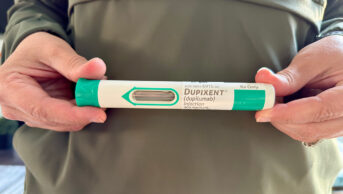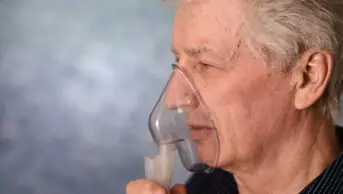
CNRI / Science Photo Library
Eosinophilic airway inflammation is present in 10% to 20% of patients with chronic obstructive pulmonary disease (COPD) and may be associated with more severe disease.
Benralizumab, an anti-interleukin-5 receptor α monoclonal antibody, is known to deplete blood and sputum eosinophils and may also have clinical benefits in COPD. According to results of a Phase IIa study published in The Lancet Respiratory Medicine (online, 8 September 2014)[1]
, benralizumab therapy led to a numerical, albeit not statistically significant, improvement in COPD exacerbations and lung function compared with placebo.
These treatment benefits were confined to the subgroup of patients with raised eosinophils at baseline, leading Christopher Brightling, from the University of Leicester, and co-authors to call for further investigation of benralizumab in COPD patients with eosinophilia.
- The authors’ conclusion that benralizumab warrants further investigation for patients with COPD and eosinophilia was based on non-significant findings from a prespecified subgroup analysis. The headline of this story was update on 11 September 2014 to better reflect this. The study did not meet its primary endpoint of improvement in acute exacerbations.
References
[1] Brightling CE, Bleecker ER, Panettieri RA et al., Benralizumab for chronic obstructive pulmonary disease and sputum eosinophilia: a randomised, double-blind, placebo-controlled, phase 2a study. The Lancet Respiratory Medicine. Online 8 September 2014. doi:10.1016/S2213-2600(14)70187-0.


